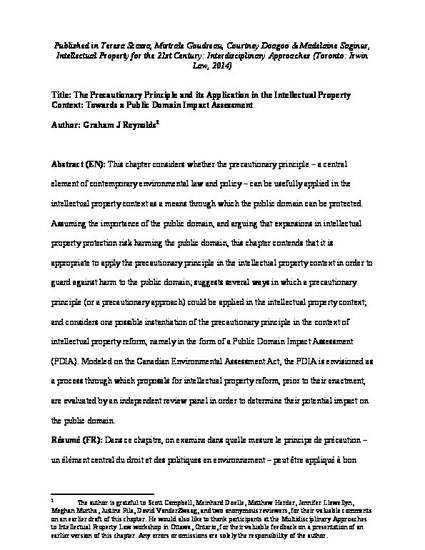
- copyright; intellectual property; public domain; Canada; environmental law; precautionary principle
This chapter considers whether the precautionary principle - a central element of contemporary environmental law and policy - can be usefully applied in the intellectual property context as a means through which the public domain can be protected. Assuming the importance of the public domain, and arguing that expansions in intellectual property protection risk harming the public domain, this chapter contends that it is appropriate to apply the precautionary principle in the intellectual property context in order to guard against harm to the public domain; suggests several ways in which a precautionary principle (or a precautionary approach) could be applied in the intellectual property context; and considers one possible instantiation of the precautionary principle in the context of intellectual property reform, namely in the form of a Public Domain Impact Assessment (PDIA). Modeled on the Canadian Environmental Assessment Act, the PDIA is envisioned as a process through which proposals for intellectual property reform, prior to their enactment, are evaluated by an independent review panel in order to determine their potential impact on the public domain.
